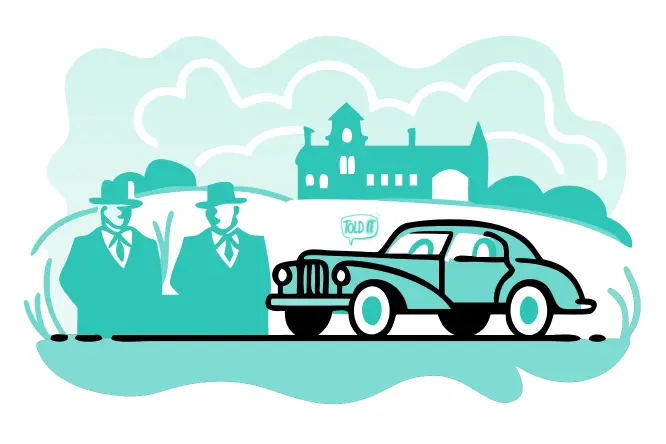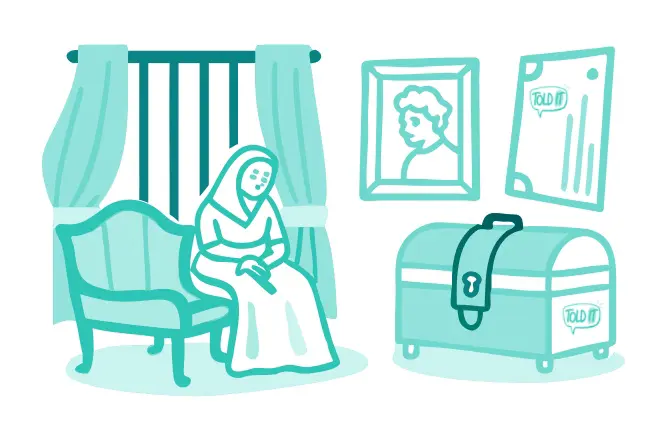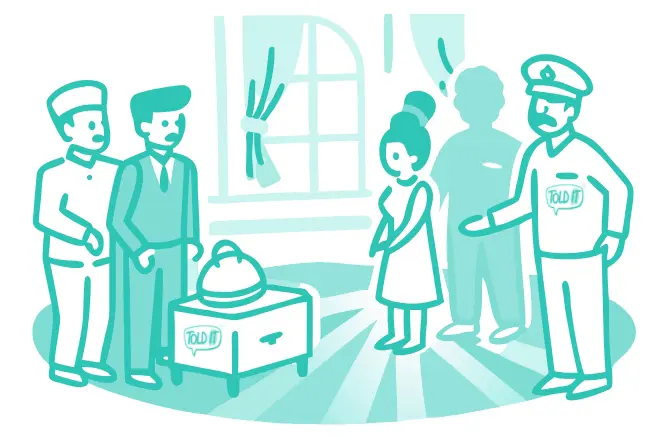Why We Drove Ten Miles
My partner Raja and I left the city just after dawn, driving south on a rain-slick highway toward a small village about ten miles beyond Boston. The client who hired us rode with us—Martin Choudhury, a well-to-do man in his early fifties whose family home sat on a sprawling, timeworn property. He called himself a businessman; he called the estate his ancestral house. He came to our office the day before in a soaked overcoat, the kind of gentleman who still wore a gold chain and a watch that announced an attachment to old money. He introduced himself and told us a short, blunt story: an old wooden trunk in his mother’s bedroom—the sort that had passed through generations—had been pried open overnight. Jewelry and heirlooms were gone. He wanted the thief found. He wanted the trunk’s key recovered if possible. He wanted answers.
When he finished his tea and his cigarette at our kitchen table, Raja asked the one question any careful investigator asks first: where was the key kept? Martin gave two answers, clipped: “One is with my mother, the other in a bank locker.” He paused, then added, “We’ll leave at three in the morning. Come with me.”
We drove that night so we could arrive before dawn. In the fog and the early light the mansion looked like an island—two stories of peeling paint wrapped in a long, unkempt garden. A cracked stone drive ran from the gate to the front steps. The house had once been grand; years of neglect had left it hanging somewhere between dignity and decay.
First Impressions and the Housekeeper
A gray-haired man in a faded dhoti—Martin’s longtime house servant—met us at the door and led us inside. Heavy wooden furniture filled every room; carved cabinets and trunks crowded the floorboards as if the house were a museum of family possessions. The portrait of Martin’s great-grandfather hung over the mantel: an austere, whiskered face that looked as if it had overseen a hundred family arguments.
On the second floor the rooms were smaller, the air thick with dust and memory. Martin’s mother—frail in body but steady in presence—kept her bedroom door open. The trunk lay by her bedside, its lid ajar. We examined it carefully. It was an old travel chest, brass-bound and dark with varnish. The lining had been torn out and the lock wrenched aside.
Raja asked her a simple question: “What time did you get up today?”
She blinked and said, “Later than usual. The sun had been up for a while.” Her voice was soft, almost resigned. We left her to rest and moved down the stairs.
Outside in the servant quarters, a woman named Ganga had worked for the family long enough to be older than memory in that house. She’d been the gardener—up before dawn, tending the shrubs and trimming hedges, the sort of person the place could not do without but rarely thanked. When we found her lifeless body near the garden gate, it felt like the first blow that broke open the case.
Two Crimes, One Neighborhood
By midmorning, the small-town constable had arrived. He was practical, used to neighborhood disputes but not used to the kind of layered betrayal this house seemed to conceal. “Looks like a knife wound,” he said when we bent low and saw the deep cut at Ganga’s chest. There was no sign of forced entry near the gate; the garden gate, however, was open in a way that suggested someone had left in a hurry—or had left someone else there.
Martin’s nephew Sukumar and his business partner, Jiban Mallik, had both been staying in the house recently. Martin suspected nothing until the trunk had been broken into and then Ganga found dead. He told us, honestly or not, that the two men’s shops had been floundering. He’d overheard suspicious talk. When Raja questioned the household staff quietly—asking who had been awake late, who had been seen near the trunk, who had left the property after midnight—his ears were sharp and his manner calm. He made the one question that found root: who benefits?
Interviews and Unease
We spent the day threading through interviews. Ganga’s routine, her long association with the household, her unwillingness to intrude into family quarrels—every detail painted a picture of a quiet person in the eye of a storm. The gardener’s knowledge of the grounds meant she would have known if someone had been hiding in the hedgerows. One of the groundskeepers said he’d seen Sukumar more than once walking at odd hours, worrying about his failing small business on Park Street. Another servant said Jiban had been anxious about money the week before. Motive stacked where opportunity existed.
Raja asked the house staff a question that seemed harmless and then returned to us with a small, satisfied smile. He’d gone out and walked the property, listening to the way the house breathed. “There’s something about the pattern,” he said. “The way people walk in and out. We’re missing one obvious angle.”
He vanished again and came back an hour later. When he spoke, his sentences were full of the sorts of certainties built from small observations: how the soil along the garden’s corner was recently disturbed; how the trunk’s lining had been replaced by simple cloth—someone had used it as a hiding place; how Martin’s mother had been unusually late rising.
A Meeting Called at Four
By midafternoon Raja asked us all to gather in the drawing room: Martin, his nephew, Jiban, the constable, the groundskeeper, and the household help. A small audience assembled—ten people or so—faces tight with expectation. Raja laid out the incidents in plain terms: the trunk had been opened, the jewelry had been removed, and someone had tried to retrieve what had been hidden the next night when Ganga caught a thief in the garden and was killed for it.
Then he told the story he had reconstructed. The trunk’s contents were taken by Sukumar and Jiban the night of the transfer. They planned to hide the loot somewhere safe until they could sell it. Their plan had been clever about ordinary things: use the garden behind a certain shrub to hide goods, then retrieve them later when things cooled down. They thought no one would be watching. But they didn’t reckon on Ganga—who, while watering at night, heard them and approached to see what was happening. To silence her, one of them had stabbed her with a knife they’d brought, perhaps intending only to scare but turning to murder.
Raja’s voice was calm but the room trembled; even Martin looked momentarily stunned. When Raja finished, he told the constable everything he believed—how the missed bank locker key, the late-night comings, the footprints in the mulch, all made a pattern that pointed to two culprits. He had already told the constable what to look for, where to dig, and how the jewelry might be found.
Confessions, and the Strange Calm Afterwards
The constable acted swiftly. In the garden corner Raja had mentioned, the dirt was fresh and a small rusted tin box lay beneath, wrapped in cloth. It contained the missing trinkets: gold and glass, the family’s small but treasured tokens. Confronted with the evidence, Sukumar and Jiban did something unexpected: both men collapsed into confession. They admitted to taking the trunk’s contents and said they’d planned to dig them up under cover of night. One of them, the younger Sukumar, admitted seeing Ganga and panicking. He swore he hadn’t intended to kill her, but in terror he used the knife they had—he could not say much else; guilt and fear made him incoherent.
I watched the two men, their faces suddenly old with shame. They made no argument; they offered no resistance. Martin, who had sat rigid through the revelations, handed Raja the fee he’d promised with a slow, heavy sigh. There was a hollow sense of relief in the room like the breath after a long held pause. Justice, such as it is in small towns, came in the form of buried things unearthed and misdeeds confessed.
Leaving the Estate
We left the Choudhury house as dusk bled across the fields. The constable led the two men away in handcuffs. Martin walked with us to the car and spoke quietly: he had felt unsettled by how quickly his family’s private things had been used against them, that those who needed money turned on the very place that had sheltered them. The mansion would remain; the family would continue. But something in the house had shifted—an old trust had been split.
Raja sat in the passenger seat and smoked a cigarette with methodical calm. “Everything looks tidy for now,” he said. “But poverty and comfort share the same neighborhood; they always find each other.” I started the engine and watched the estate shrink in the rearview mirror: the gate, the broken paint, the garden where a gardener had once walked and would never walk again.
We drove ten miles back into the city, road lights blurring, and the long story of the house stayed with us—an old trunk, a night of greed, and a life ended in the quiet of a garden. In a place not far from Boston, the small-scale tragedies read like a map of human consequence: choices made quick, justice slow, and families rearranged by the impulse to take what is not theirs.







